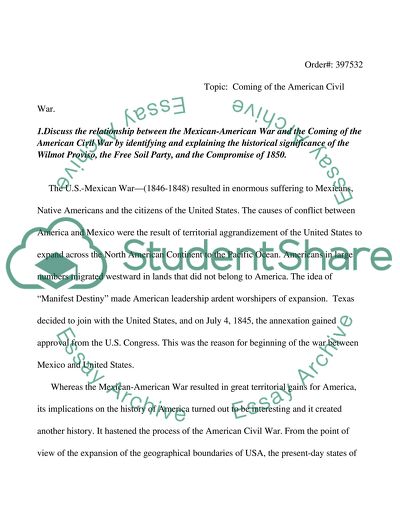Cite this document
(“Coming of the American Civil War Essay Example | Topics and Well Written Essays - 2250 words”, n.d.)
Retrieved de https://studentshare.org/miscellaneous/1562899-coming-of-the-american-civil-war
Retrieved de https://studentshare.org/miscellaneous/1562899-coming-of-the-american-civil-war
(Coming of the American Civil War Essay Example | Topics and Well Written Essays - 2250 Words)
https://studentshare.org/miscellaneous/1562899-coming-of-the-american-civil-war.
https://studentshare.org/miscellaneous/1562899-coming-of-the-american-civil-war.
“Coming of the American Civil War Essay Example | Topics and Well Written Essays - 2250 Words”, n.d. https://studentshare.org/miscellaneous/1562899-coming-of-the-american-civil-war.


